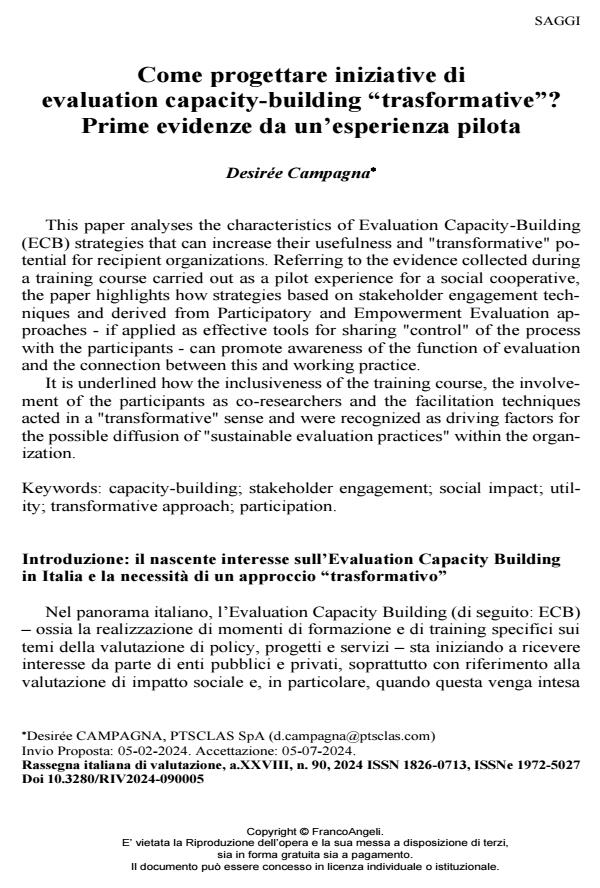Come progettare iniziative di evaluation capacity-building “trasformative”? Prime evidenze da un’esperienza pilota
Journal title RIV Rassegna Italiana di Valutazione
Author/s Desirée Campagna
Publishing Year 2024 Issue 2024/90
Language Italian Pages 19 P. 68-86 File size 473 KB
DOI 10.3280/RIV2024-090005
DOI is like a bar code for intellectual property: to have more infomation
click here
Below, you can see the article first page
If you want to buy this article in PDF format, you can do it, following the instructions to buy download credits

FrancoAngeli is member of Publishers International Linking Association, Inc (PILA), a not-for-profit association which run the CrossRef service enabling links to and from online scholarly content.
This paper analyses the characteristics of Evaluation CapacityBuilding (ECB) strategies that can increase their usefulness and "transformative" potential for recipient organizations. Referring to the evidence collected during a training course carried out as a pilot experience for a social cooperative, the paper highlights how strategies based on stakeholder engagement techniques and derived from Participatory and Empowerment Evaluation approaches if applied as effective tools for sharing "control" of the process with the participants can promote awareness of the function of evaluation and the connection between this and working practice. It is underlined how the inclusiveness of the training course, the involvement of the participants as coresearchers and the facilitation techniques acted in a "transformative" sense and were recognized as driving factors for the possible diffusion of "sustainable evaluation practices" within the organization.
Keywords: capacitybuilding; stakeholder engagement; social impact; utility; transformative approach; participation.
Desirée Campagna, Come progettare iniziative di evaluation capacity-building “trasformative”? Prime evidenze da un’esperienza pilota in "RIV Rassegna Italiana di Valutazione" 90/2024, pp 68-86, DOI: 10.3280/RIV2024-090005